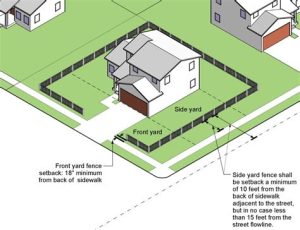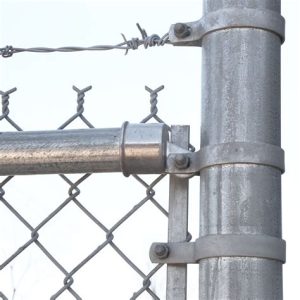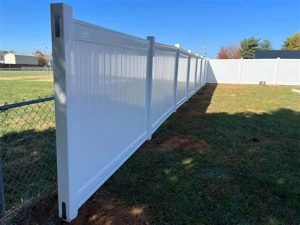Explore key factors for successful projects: cultural norms, work quality, service extras, project size, and local expert insights.Tipping can often feel like a gray area, especially when hiring a specialized service like a fence installer. While tipping is a customary practice in many industries, understanding its relevance in the context of home improvement can be crucial for both the homeowner and the installer. In this blog post, we will explore the factors that influence tipping decisions, including cultural norms and quality of work, as well as service extras and project size. Additionally, we will highlight the importance of consulting local experts to gain insights tailored to your specific situation. By the end, you’ll have a clearer perspective on how to navigate the tipping landscape when working with a fence installer, ensuring that you show appreciation for quality craftsmanship while aligning with industry standards.
Understanding Cultural Norms
Understanding cultural norms is essential when hiring a fence installer, particularly if you’re working in a diverse community or a new geographical area. In many societies, tipping practices can vary significantly based on local customs, traditions, and the overall service environment. Therefore, it becomes crucial to familiarize yourself with these practices before deciding on a tipping protocol.
- Local Expectations: Research what the typical tip amount is for home improvement services in your area.
- Service Quality: If the work is exceptional, a higher tip might not only reflect your satisfaction but also reinforce good practices among service providers.
- Company Policies: Sometimes, companies may have specific no-tipping policies; knowing this can save you from any awkward situations.
It’s also helpful to remember that perception of generosity can differ between cultures. In some places, giving a tip can be seen as an insult, while in others, it is a crucial part of the customer service transaction.
Assessing Quality of Work
When it comes to hiring a fence installer, one of the most crucial aspects to consider is assessing the quality of work that the contractor provides. This can prevent future issues and ensure that your fence not only looks good but also stands the test of time. Here are some practical steps you can take to evaluate the quality of work.
First, check online reviews and ratings from previous clients. Websites like Google, Yelp, and Angie’s List can offer insights into a contractor’s reputation. Look for feedback that specifically mentions the quality of craftsmanship, timeliness, and professionalism. It’s advisable to focus on recent reviews as they reflect the current standards of the contractor.
Moreover, don’t hesitate to ask for examples of past work. A reputable installer should be able to provide a portfolio or even references from satisfied clients. Visiting completed projects can give you a clear vision of what to expect and help you make an informed decision. Finally, consider the materials used in their projects. High-quality materials often translate into a better end product, so inquire about the sourcing and durability of the materials being proposed.
Determining Service Extras
When hiring a fence installer, it’s essential to understand the various service extras that may be offered, which can significantly enhance the overall value of your project. These extras can complement the primary service and ensure that the installation not only meets your expectations but exceeds them.
- Post-installation cleanup: A reputable installer may offer to clean up any debris left from the installation process.
- Optional finishes: Additional staining or sealing can protect your fence and add aesthetic appeal.
- Repair services: Many installers provide repair work for existing fences and gates, which can save you time and effort.
- Warranties or guarantees: Ask if the installer includes warranties for the fence and workmanship, ensuring long-term peace of mind.
It’s important to communicate openly with your fence installer about these extras.
Considering Project Size
When hiring a fence installer, one of the most critical aspects to consider is the project size. The size of your fencing project can significantly affect not only the overall cost but also the service quality and the installer’s availability. As a homeowner, understanding these factors can help ensure you get the best value for your investment.
The size of the area you want to fence in will dictate the amount of material needed, the labor hours required, and potentially the type of fence that is most suitable for your needs. For instance, a small residential project may be completed in a day or two, while a larger one may span several days or even weeks. Installing a fence for a large backyard or property typically requires more intricate planning and could involve additional services, contributing to the overall cost.
It’s also important to remember that larger projects might necessitate the involvement of multiple workers. This could influence not just the project’s timetable, but also the need for a gratuity or tipping policy. A larger team means there’s a higher likelihood of varied performance, so assessing how well they work together can be an indicator of whether or not to tip generously based on the project difficulty and their workmanship.
Consulting with Local Experts
When it comes to hiring a fence installer, one of the most effective strategies is consulting with local experts. These professionals have invaluable knowledge about the specific requirements, materials, and regulations in the area where you live. They can provide insights into the best practices for fence installation that align with both the aesthetic and functional needs of your property.
Local experts often have established relationships with local suppliers, which can translate into better material choices and possibly lower costs. Additionally, their understanding of local zoning laws and community standards ensures that your fence not only meets your personal preferences but also complies with legal requirements.
When seeking advice, consider reaching out to multiple local professionals. Collecting different perspectives will help you make a more informed decision. You might even want to ask for recommendations from neighbors or friends who have recently installed fences, as they can provide firsthand experiences and reliability assessments of various installers.
Frequently Asked Questions
What is the general guideline for tipping a fence installer?
A common guideline is to tip between 10% to 20% of the total installation cost, depending on the quality of service.
Are there circumstances where tipping might not be necessary?
Yes, if the company has a policy against tipping or if the installer is a salaried employee, tipping may not be expected.
What factors should influence my decision to tip a fence installer?
Factors include the quality of workmanship, professionalism, timeliness of the project, and whether the installer went above and beyond.
How can I communicate my appreciation to a fence installer without tipping?
You can express appreciation through a positive review, a referral to friends or family, or even a small gift like refreshments during the job.
Should I tip if I am unsure about the quality of the installation?
It’s best to wait until the job is completed to your satisfaction before considering a tip. If you’re uncertain, discuss any concerns directly with the installer.
Is there a difference in tipping between independent contractors and company employees?
Typically, independent contractors rely more on tips for their income, whereas employees may receive a steady wage, making tipping less critical.
When is the best time to give a tip to a fence installer?
The best time to give a tip is at the end of the project, after you inspect the work and confirm quality to your satisfaction.





